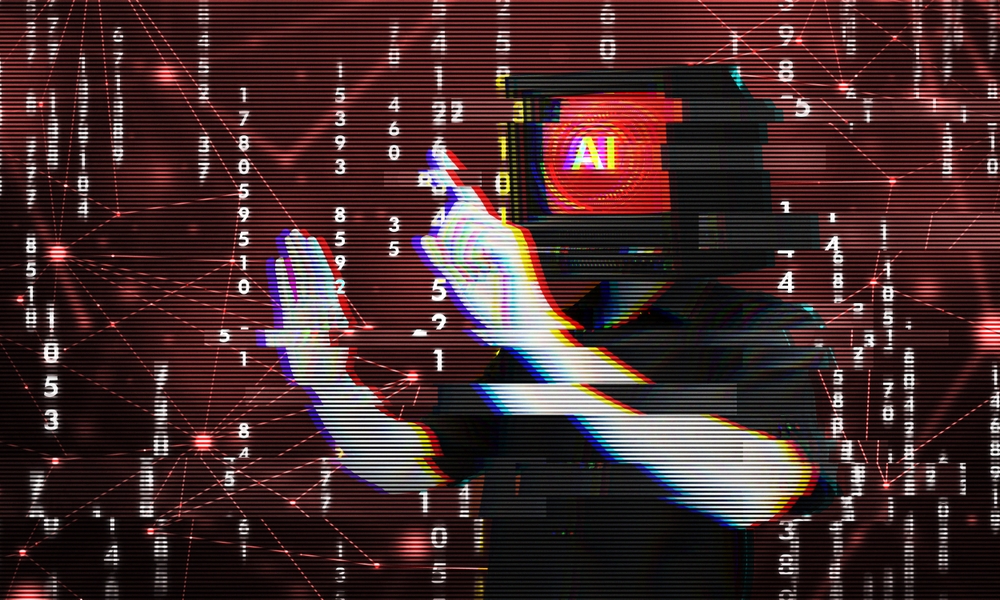AI has been at the center of American life throughout 2025, shaping everything from workplace tools to political debates.
Others are reading now
AI has been at the center of American life throughout 2025, shaping everything from workplace tools to political debates. After months of headlines about layoffs, accelerating automation, and a patchwork of state-level AI laws, a new analysis shows that public anxiety around the technology not only climbed this year, but shifted in unexpected ways.
A new look at what Americans worry about most
Researchers at Cybernews and nexos.ai examined search behavior across the U.S. from January through October, using Google Trends data to understand which AI topics drove the most anxiety. Instead of tracking general curiosity, the study focused on searches phrased as concerns — the kinds of queries people make when they feel unsure, threatened, or confused.
The team categorized those worries into five groups: regulation, privacy, bias, misinformation, and job displacement. Each category was represented by three search phrases tied to uncertainty, such as “is AI legal” or “AI taking jobs.” From there, researchers measured how anxiety levels rose or fell over the year.
Political heat helped drive regulatory concern
The data shows a clear spike in searches related to rules and oversight, particularly in late spring. That period saw major political activity: lawmakers pushed Congress to lift a moratorium on state-level regulation, Texas passed its Responsible AI Governance Act, and California released guidance warning about privacy risks tied to AI systems.
These events appear to have fed a surge of questions around how artificial intelligence should be governed, and who—if anyone—is currently responsible for policing it.
Also read
Privacy fears rose alongside security warnings
Privacy-related fears followed a similar trajectory. In June and July, several large AI companies published warnings about vulnerabilities in their own systems. Microsoft highlighted prompt-injection attacks, and Anthropic disclosed that one of its models had already been used in a large data-theft campaign.
As Americans became more aware of how much personal information flows through AI systems—and how often that data appears in corporate reports about security incidents—searches tied to privacy jumped sharply.
Bias, misinformation, and trust concerns climbed steadily
Other categories rose more gradually. Searches about ethical bias, deepfakes, and general trust in AI remained comparatively stable, but still trended upward throughout the year. Election-related misinformation and recurring incidents of biased automated decision systems likely contributed.
These concerns didn’t dominate the search landscape, but the study notes that they formed a consistent undercurrent in how Americans viewed AI in 2025.
So what about job fears?
With multiple major companies streamlining roles because of automation this year, researchers expected job displacement to be a major driver of public anxiety. For most of the year, it wasn’t.
Also read
Even as Microsoft cut thousands of positions linked to AI adoption, searches related to job loss stayed relatively low. Only in late October, when reports surfaced about potential large-scale layoffs at Amazon, did job-related anxiety spike dramatically. Interest in this category jumped more than 200 percent week-over-week, briefly becoming the most-searched AI fear.
But that surge was short-lived — and did not change the overall trend.
The reveal: losing control ranked as Americans’ top AI fear
Across the entire dataset, the category that consistently scored highest was not job loss. It was control and regulation — questions about what rules exist, who enforces them, and whether AI systems operate within any clear boundaries at all.
Privacy followed closely, showing that 2025 was the year Americans worried less about AI replacing them at work, and more about whether anyone is truly in charge of the technology shaping their lives.
Researchers say this reflects a deeper shift. As AI systems become more complex and less transparent, the fear isn’t just about what they can do — but about whether ordinary people, organizations, or even governments still have meaningful oversight.
Also read
A sign of how Americans now view AI
Cybernews researchers say the trend points to a more mature public understanding of artificial intelligence. Rather than treating AI as a novelty or a sci-fi threat, Americans are starting to interrogate how the technology is governed, how their data is handled, and what it means to rely on tools they can’t easily inspect or challenge.
Interest across all five categories rose throughout the year, showing that concern is rising broadly — not because people fear AI in isolation, but because they increasingly recognize how deeply it affects their work, privacy, and daily life.
Source: Cybernews, Nexos.ai


